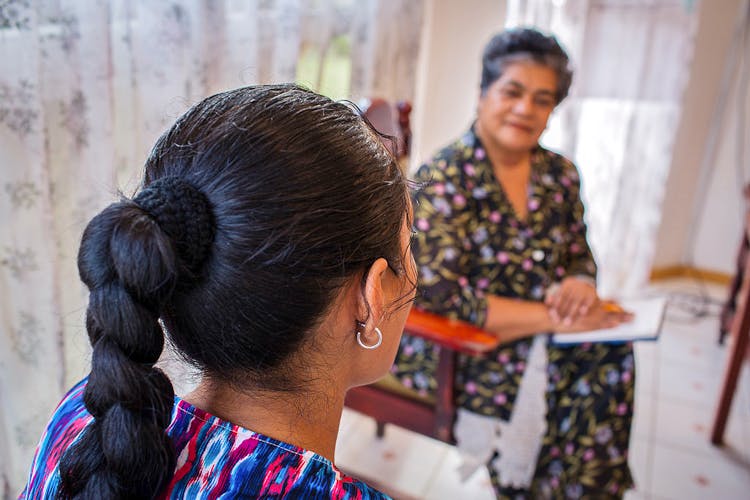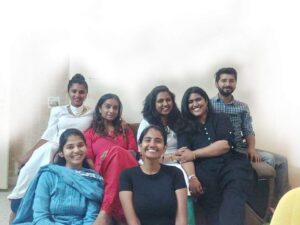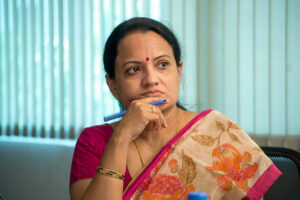Mental health professionals face burnout amid pandemic

According to a survey by the Indian Psychiatric Association, mental illness cases increased by 20 pc during lockdown
“I haven’t seen my therapist in over a month, and I miss her,” Nithya Rao says with a sigh. Rao sounds like many people during the pandemic – uncertain, alone, in need of mental health care. There is just one difference – Rao is a therapist herself. Based in Bangalore, Rao is a rehabilitation psychologist at a private hospital.
When the World Health Organisation warned of a mental health crisis worldwide during the early months of the pandemic, India was only in its second lockdown phase. Subsequently, as the lockdowns prolonged, health crisis deepened and so did the crisis of mental health.
Therapists like Rao and other mental healthcare workers have been at the forefront of battling mental health crisis in the country amid the raging pandemic. During the lockdown, their work increased manifold. Unfortunately, while almost all other ‘corona warriors’ have been talked about and applauded, mental healthcare givers remain on the margins and have been pushed towards the receiving end of mental healthcare or therapies.
Overworked and exhausted
According to a survey by the Indian Psychiatric Association, mental illness cases increased by 20 pc following the nationwide lockdown, and nearly one in five Indians currently have mental health struggles. In light of this, a paper published in the Asian Journal of Psychiatry warned as far back as July that “emotional contagion, perceived stress, compassion fatigue, secondary traumatic stress, poor therapeutic effectiveness, and longer duration of therapy” could strain India’s mental health care workforce to a breaking point.
Rao agrees with the report and explains that India’s mental health professionals, already in vastly short supply relative to pre-pandemic population needs, are overwhelmed, overlooked, and starting to burn out.

Nithya Rao (in the middle) with a team of fellow counsellors at her clinic (Photo Credit: Nithya Rao)
“The last thing I remember in 2020 is February. After that, it has just been a blur,” Rao tells Media India Group. She and her team have been working 14 to 16 hour days to keep up with the increased demand for therapy. At least once a day, she says, one of her colleagues breaks down after a counselling session. Across the country, mental health professionals interviewed for this article report similar emotional and physical exhaustion.
“I’ve not even had a chance to mourn my own family members,” Rao says. And “it all feels like nobody cares. People don’t think we’re frontline workers but we are. We do not get treated like we are frontline workers but we are.”
Some of the struggles mental health care providers face are common to anyone lucky enough to have a job mid-pandemic – adapting to teleconferencing, carving out a home workspace, trying to re-establish boundaries once so clear by means of a commute – between work and home life. Added to that is the worry over the infection, especially for mental health professionals working in hospitals. And the mourning for loved ones lost to Covid-19.
Inability to help patients
But these struggles come with added layers of stress for mental health caregivers. The biggest strain, they say, is the constant feeling of helplessness that pervades their work during this time. No kind of mental health care training covers how to help people through a deadly worldwide pandemic and months-long lockdown. Amid an ongoing situation that has affected all aspects of life and made vulnerable millions of people, the normal tools and advice do not work.
“What good is, say, cognitive behaviour therapy, when your client is worrying over whether they can afford their next meal? What good is mindfulness when they are stuck in an abusive home and cannot leave,” asks Rao.
“Stay home is nicely told, but it’s so hard for people who have to stay home when the home is not safe,” says Rao, whose practice also caters to the LGBTQ community and other marginalised groups. “Witnessing that has taken a toll on our own emotional health,” she adds.
Then there are concerns about being able to provide care effectively in these times. Mental health professionals worry whether virtual sessions can have the same therapeutic effect as in-person meetings. Others grapple with how to make in-person counselling effective and empathetic when everyone’s face is obscured by a mask. Most talk about stressing over how to maintain patient confidentiality during video consults with families cooped up at home. “Some of us deal with family members who stigmatise their profession and disrespect their work time. And all worry about the mental energy required to maintain their professional and personal emotional boundaries – energy that seems to drain a little more each day,” Nandini Raman, a counselling psychologist in Chennai.
But they have little opportunity to acknowledge and deal with these strains. As the outlet for their patients’ constant negative emotions and experiences, mental health professionals’ own emotions take a backseat.
“Nobody comes to you with happy news, right? Everyone is either sad or cutting up themselves. It is only negative information you are processing,” says Raman. The most difficult time for Raman came in June, the third month of the lockdown, when people were peaking with isolation, loneliness and financial issues. Then came the news of actor Sushant Singh Rajput’s suicide and the media frenzy around his death. Suddenly, all of her sessions were about self-harm and suicidal ideation. “What was so terrible in his life? If he can go ahead and do something like that, so can I,” was the tone of many sessions, she explains. At her lowest point, Raman was not sleeping at night and worked through the weekend handling self-harm emergencies.
“I really pulled the plug then. I took a three-day break where I am just not available,” she told her clients.
Many mental health professionals also said they feel guilty for taking time to rejuvenate or deal with their own emotions amid the mental health crisis.
Guilt over taking breaks
“If I take two weeks off, 20 of my clients cannot see me. How can I take two weeks off knowing they need me?” Rao asks. She recognises she is burning out and knows what she needs to do to address it, but she struggles to justify taking time to recharge which compounds the guilt, creating a vicious cycle of emotional exhaustion. “I feel like I am not practising what I preach a lot of times. The dichotomy of this guilt and the passion to work with the people we care about is exhausting to balance.”

Mathivanan is the only Counselling Association-certified trainer and supervisor to senior practitioners in India (Photo Credit: Vasuki Mathivanan)
This kind of over-commitment can be an unconscious and unhealthy coping mechanism, suggests Saras Bhaskar, PhD candidate and a counselling psychologist in Chennai. Since the pandemic’s onset, Bhaskar has nearly doubled her workload, and while she is vigilant about cutting back her services when she senses she is overwhelmed, there was a time in her career when she wouldn’t have.
“It can be addictive when you are doing good and it shows,” says Bhaskar, who has practised for 25 years. “When clients approach you with that trust, it can be very difficult and stressful to say no to them.”
Despite the overwhelming mental health burden of the pandemic, some of the profession-wide burnout could be avoidable, says Vasuki Mathivanan, PhD, a Chennai-based counselling psychologist and founder of the Indian Academy of Professional Supervisors. A more regulated field would mean a better safety net for mental health professionals. “Currently, there is no mechanism to monitor how a practitioner is doing. There is no role training either,” says Mathivanan.
“Without a regulatory body, doing supervised practice is one way to mitigate these risks of compassion fatigue and burnout,” she says. In a supervisory model, a practitioner is paired with a supervisor who acts as a professional sounding board as well as a monitor of the practitioner’s own mental health.
“You have a feeling that you have a supervisor with whom you can talk,” Mathivanan says, is one of the benefits to the model and “as a supervisor, you’re supposed to identify if your supervisee is going through burnout or other issues.”
But Mathivanan is the only Counselling Association-certified trainer and supervisor to senior practitioners in India. In the past two years, she has trained 40 supervisors – no mean feat for a solo trainer who also maintains a private practice, but a mere dent in the larger mental health field.
Need for supervision
Even in non-pandemic times, studies suggest anywhere from 21 to 67 pc of mental health workers experience high levels of burnout. Mental health care burnout is ‘bad for patient care and is economically wasteful,’ concludes other research. Occupational burnout in general, regardless of field, can take years to recover from and affect not just current but also future performance. “As vaccines roll out to curtail the spread of Covid-19, a battered world starts to look more optimistically toward the future. But mental health care workers are worried. Who provides care when we cannot,” asks Bhaskar.
“Public mental health will be neglected and multiplied. The post-pandemic rebound when schools, colleges and offices open in full capacity, will be much harder – and that thought is what is scaring me. While private professionals are still in a better position, the ones in government-owned hospitals are doing worse. We are regularly meeting with the government representatives and are pushing for a safety net, better payment and better working conditions for us,” she adds.
Similar to what Bhaskar says, Rao is also optimistic and says that eventually as the word about mental health spreads and people become aware, many professionals like her will have better working conditions and better mental health to help themselves and their patients.









